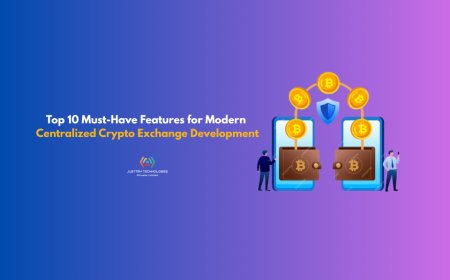How AI is Powering Personalized Mobile SEO Campaigns in 2025
In a world where mobile searches now account for more than half of global web traffic, optimizing for mobile SEO is no longer optional—it’s essential. Yet as search behavior becomes more dynamic and user expectations continue to rise, static SEO strategies can’t keep up. This is where artificial intelligence (AI) comes into play, revolutionizing how businesses approach mobile SEO.

This article explores how leading digital marketing agencies are leveraging AI to deliver personalized mobile SEO campaignsstrategies tailored not just to devices, but to individual users' behavior, location, intent, and engagement patterns.
Why Personalization Matters in Mobile SEO
Mobile users are typically searching on-the-go, with immediate intent. Whether it's finding a nearby service, researching a product, or getting a quick answer, the stakes are higher for mobile search results to be fast, relevant, and localized.
Heres why personalization is crucial in mobile SEO:
-
User behavior differs dramatically between mobile and desktop platforms
-
Search queries are shorter, voice-driven, and more intent-specific
-
Mobile users expect instant answers and seamless UX
-
Location, time of day, and browsing history affect mobile search behavior
Without personalization, mobile SEO risks delivering generic content that doesnt convert, leading to high bounce rates and lower rankings.
The Role of AI in Transforming Mobile SEO
Artificial intelligence brings a level of adaptability and precision to SEO that traditional methods cant match. It enables marketers to analyze massive data sets in real-time and generate insights to guide optimization decisions at scale.
Predictive Search Behavior Analysis
AI-powered tools can analyze user data to predict what content or service a mobile user might be looking for next. This includes:
-
Browsing patterns
-
Scroll depth and time on site
-
Past search history
-
Location and time zone
This analysis enables search marketers to anticipate user intent and serve relevant content that boosts click-through rates and session duration.
Real-Time Content Personalization
AI can dynamically alter content based on user context. For example:
-
Displaying location-specific landing pages
-
Showing mobile-friendly CTAs based on screen size or touch behavior
-
Prioritizing FAQs or visual content if the user is on a slower connection
This kind of personalization keeps mobile users engaged and reduces friction.
Voice Search Optimization
With the rise of mobile voice assistants like Siri and Google Assistant, voice search has become a core mobile SEO trend. AI helps optimize for this by:
-
Identifying conversational keyword trends
-
Creating content that answers specific, spoken queries
-
Structuring content with schema markup to appear in voice results
Optimizing for voice means not just ranking, but becoming the one result a smart assistant reads aloud.
Automated Mobile SEO Audits
AI can conduct comprehensive, real-time audits of mobile sites, assessing:
-
Mobile responsiveness and layout issues
-
Page speed and Core Web Vitals
-
Structured data integrity
-
Crawl errors and broken links
These audits save time while pinpointing performance issues that can tank mobile rankings.
Case in Point: Intelligent Mobile SEO with Predictive Content
Some agencies have already adopted AI to personalize mobile SEO strategies for their clients. For instance, firms like Impressico Digital use AI tools to match keyword intent with the content format mobile users preferwhether it's short-form blog posts, videos, or local map integrations.
By integrating AI with web analytics, businesses can learn not only what users are searching, but how and whyand then tailor landing pages accordingly. This approach allows for scalable personalization across different cities, devices, and user segments.
Challenges in AI-Powered Mobile SEO (And How to Overcome Them)
While the benefits of AI in SEO are clear, implementation still presents a few hurdles:
Data Privacy Regulations
AI personalization relies heavily on user data. With global regulations like GDPR and CCPA, businesses must ensure that any AI-driven strategy respects user privacy and obtains proper consent.
Solution: Use anonymized data and ensure your SEO tools comply with data security standards.
Over-Automation Risks
Relying entirely on AI can result in robotic content or impersonal UX, especially if algorithms arent trained properly.
Solution: Combine AI analysis with human editorial oversight to maintain brand voice and content quality.
Tool Integration
Not all businesses have the tech stack needed to implement advanced AI models. Many struggle to integrate AI with their existing CMS, analytics, or CRM systems.
Solution: Start with modular AI tools that integrate easily (e.g., for keyword research, page speed monitoring, or content scoring) before expanding into full-scale AI SEO platforms.
Future Trends in AI-Driven Mobile SEO
As we look forward, several trends will likely define the future of mobile SEO:
Personalized SERPs
Search engines are increasingly showing results tailored to the users contextsuch as time of day, current activity, or device history. AI will play a vital role in optimizing for these hyper-personalized SERP features.
AI-Powered Conversational Interfaces
Chatbots and voice interfaces will become an extension of mobile SEO. Optimizing content for AI-generated conversations (like ChatGPT responses) will be just as important as traditional rankings.
Visual and Multimodal Search
Mobile users are using cameras and images to search. AI can help optimize for visual search by improving image metadata, labeling, and indexing for platforms like Google Lens and Pinterest.
Website: https://www.impressicodigital.com/services/seo-services/mobile-seo/
Conclusion: AI Is Redefining the Mobile SEO Playbook
Personalization in SEO is no longer a luxuryits an expectation, especially for mobile users who demand speed, relevance, and localized experiences. AI allows marketers to meet these expectations by transforming how we analyze data, create content, and respond to user intent.
While traditional SEO will always have a place, businesses that want to lead in mobile search need to evolve. AI doesnt just improve efficiencyit unlocks a deeper understanding of user behavior, allowing for smarter and more targeted SEO strategies.






















